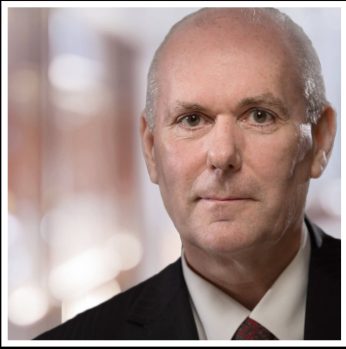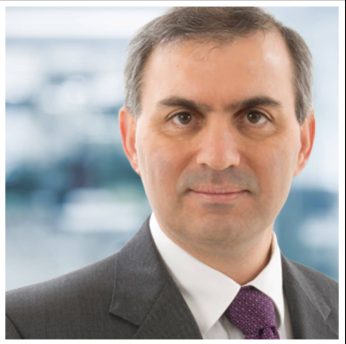In 2011, Simon Gibson and Owen Matthews founded the Alacrity Foundation; an organisation that aims to help student entrepreneurs create the next generation of technology companies.

The founders set out to deliver a unique experience that provides graduates with a fifteen month programme combines with access to world-class mentors and accelerated market access.

“There are two things which are fairly unique about Alacrity. One, it’s a charity, and an educational foundation, and the second thing is, no one’s expected to come to the foundation with an idea. They can bring their ideas. We tend to work with the private and public sector and we ask them ‘what’s killing you, what do you need?’ That’s really quite an insightful exercise because many respond with an observation that they are never asked for such insights as everyone is always trying to sell them something. I learnt a long time ago, and it’s very much a lesson that has come from my association with Sir Terry Matthews, that it’s essential to build what the customer needs. Always focus on that customer. You’re much better off with a demand driven business than a supply one. A company in which you know someone wants to buy the product, versus starting a venture where you hope someone wants to buy the product you assumed they needed. There are graveyards full of companies where people were beguiled by their idea, they never listened to the customer and when launched, (and sometimes having raised quite large amounts of money around that idea), suddenly discover nobody wants the product or service.”
Upon graduation, the programme provides graduates access to a designated venture capital fund to fund their graduating companies, this is separate from the foundation. Simon explains: “The founders don’t have to take the money, obviously, but if they choose to take it, they get up to £250,000 cash and for that they get 40% of the company with a 20% stock option scheme on top of that. The foundation gets 10% in exchange for the IP created during the fifteen months of the programme. The idea is that the charity itself might evergreen in the future as companies exit. The investors, which comprises a combination of private and public money, get the remaining equity in the company. So, when they graduate, they’ve got a post-round company valuation of half a million pounds.”
Alacrity also provides a mentoring programme with more than a hundred mentors in it. Simon says: “I usually ask high-profile executives to donate a day a year to helping these young people. In reality it’s not a whole day, it’s typically a couple of hours, a morning or an afternoon.” This is often a new experience for many of those who volunteer with inevitable nerves which are usually overcome after the first mentoring session, as Simon adds: “After they’ve spent the time with these young people, they come running out and in many cases say ‘when can I do it again?’. It’s such a virtuous experience, you’re helping young graduates, you’re sharing your wisdom and your skills with them and it’s a good feeling.”

The programme is aimed at graduates with a growth mindset and skills in either computer science, STEM subjects, business or graphic design. In addition, they look for emotional resilience, a hard work ethic, persistence and the ability to work as part of a close-knit team.
Simon and Mike are keen to ensure that students understand what it takes to set up and run a business. Mike explains: “In the early stages, we see around 30% attrition due to the hard going. We try to make sure they understand it’s not a nine to five, this is a be-all, end-all. This is your company and you’ve got to understand that if you want a nine to five type job, then you need to find something else.”
Each student is supported with a stipend. Mike adds: “We expect them to really give everything to it, because in the end, if they’re going to receive funding, they’re responsible to shareholders and that’s a significant commitment by a shareholder to give them £250,000 when they usually haven’t got a consistent revenue stream and they’ve got a product still in its infancy.”
The programme attracts around a 60-40 male to female gender split, is very diverse and is open to international students as well as UK students. Mike adds: “We don’t make any specific selections based on gender. We try to encourage women to apply, and we have a Women in STEM programme to do that. We select on meritocracy. If you can pass the process and impress people, that’s all that matters. You’ve got to work as a team.”
Alacrity’s success is already evident and growing as Simon explains: “We’ve had some exits already. The company with the highest valuation is about $400 million. We’ve fast growing companies in contact centre, cybersecurity, energy, corporate solutions, hospitality, datascience and education markets doing rather well.” In the UK we’ve got companies now who we could sell if we wanted to, but the idea of what we’re trying to achieve is to create British companies that stay British.”
